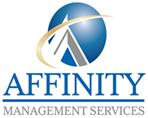|
HOW TO STOP A ROGUE PRESIDENT
By
Rafael Aquino
Published December 2, 2020
Shortly after the organizational meeting, there
are instances where Presidents run wild with unilateral decision
making, and the democratic nature is eroded. Moreover, what could
have been a neighborly and professional effort to collaborate for
the community's improvement turns into personal resentment and poor
relationships. When a President is seen with this dictator style
approach to their role, it is usually a sign of three common issues:
1. Complete lack of understanding of the board member and officer
roles, authority, and decision-making process
2. Fellow board members are, for the most part, absentee or
apathetic in their participation
3. There is a mix of very different personality traits driving the
need for accomplishment, execution, and a sense of urgency
It should be 100% clear that no officer role
entitles any officer more authority than their fellow board members,
whether they are an officer or not. Every board member still has one
vote, and said vote is worth the same as any other officer/board
member. To be clear, the President has the same amount of authority
as any other board member and cannot make any decisions without the
Board's authority through an actual resolution of the Board of
directors.
Any association dealing with a President gone wild or simply looking
to avoid it can take the following steps, which also happen to be
sound governance practices regardless of what kind or President an
association has:
1. Have the association attorney involved to provide reinforcing
guidance on the function of the Board and officers, the
decision-making process in and out of board meetings, and certainly
play out some scenarios that will help educate everyone and reset
the tone through education
2. With the help of management and attorney, implement a strong
governance structure with decentralized functions:
a. If there are absentee board members,
kindly ask them to step down so another neighbor can take a more
active role in community leadership and improvement.
b. Agree upon a regular board meeting
schedule for the whole year and stick to it. Everything should be
decided at these meetings by a majority of the Board.
c. Depending on the size of the operations,
create specialized committees such as- financial management and
budgeting, resident orientation, rules of use enforcement, ad hoc
needs such as major projects or seasonal beautification, and
community events and communication, etc. The association manager and
attorney can work together to ensure the committee structure is
adequately documented to provide each committee is reasonably able
to carry out their functions with the right balance of involvement
from the Board and not a single member.
d. The association manager can help implement a
written management plan with the Board that outlines all recurring
operational tasks for the year and all major projects. This can
bring a sense of accountability for everyone and put everyone on the
same page with what will be done, by when, and by whom in the
association over the course of the year. This approach avoids mass
confusion, overtasking, and sets the right expectations for everyone
of what will be accomplished by when.
3. As an option of last resort, the Board may seek to conduct
another organizational meeting to re-assign the officer roles and
assign the President role to another board member. This is purely a
function of the Board and does not require any special meeting or
voting procedure, nor does it require unit owner involvement.
The Board certainly has options to deal with a "difficult" President
through a professional approach to association governance.
|
|
 |
As the Co-Founder and CEO
of Affinity Management Services, Rafael P. Aquino leads his team to
redefine excellence. They serve community associations
efficiently |
|
and effectively with
dedication and passion. Rafael’s energy and positive
spirit is the foundation of Affinity Management
Services’ company culture, which instills enthusiasm and
excitement when providing expert advice to its board
members and relieving the day-to-day burdens of running
a community association.
Since 2007, Rafael has
developed a work culture that values responsive and
high-quality services. He has led his team by following
a proactive vs reactive philosophy. The same approach
Rafael instills in the day to day operations of each
association. Today, Affinity Management Services
maintains its success and benefits as a result of the
foundation Rafael has built and continues to foster by
providing educational seminars, continuing education
classes for association managers and board members
alike.
Rafael and his team help condominium and homeowners’
associations save money and improve their communities.
His calm, personable, and service-oriented nature helps
him to establish strong relationships with ease. Rafael
is known as a sincere and honest leader who looks out
for the best interests of his clients and communities,
and he strongly advocates for their needs. His role
requires coordination and communication, as such he
takes logical and intelligent steps to approach
challenges head-on.
As a graduate of Florida International University’s
electrical engineering program and a licensed community
association manager, Rafael’s education and skills equip
him with unique insights to tackle complex problems
through critical thinking. He understands how each
component within a system works together in order to
effectively arrive at solutions, techniques, and
conclusions. Therefore, as he manages the multiple
challenges of running a community association management
company, he understands how each property is its own
unique system and tailors’ specific services to assure
that all their needs are met.
For more information about Rafael P. Aquino and Affinity
Management Services please visit
www.ManagedByAffinity.com or call 1-800-977-6279
|
|

Doral Office: 8200 NW 41st ST
Suite 200
Doral, FL 33166
Broward Office: 150 S Pine Island RD Suite 300
Plantation, FL 33324
O: 800-977-6279 ● F: 305-325-4053
|
|


